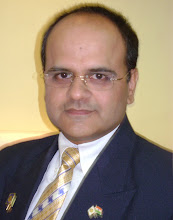BHOPAL, India – An Indian court on Monday convicted seven former senior employees of Union Carbide's Indian subsidiary of "death by negligence" for their roles in the Bhopal gas tragedy that left an estimated 15,000 people dead more than a quarter century ago.
The subsidiary company, Union Carbide India Ltd., was convicted of the same charge but the company no longer exists.
The former employees, many of them in their 70s, face up to two years in prison. The judge has not yet announced sentences.
Large groups of survivors and relatives, along with rights activists, gathered in the city and chanted slogans saying the verdict was too little, too late.
Early on Dec. 3, 1984, a pesticide plant run by Union Carbide leaked about 40 tons of deadly methyl isocyanate gas into the air in the city of Bhopal in central India, quickly killing about 4,000 people. The lingering effects of the poison raised the death toll to about 15,000 over the next few years, according to government estimates.
Local activists insist the real numbers are almost twice that, and say the company and government have failed to clean up toxic chemicals at the plant, which closed after the accident.
The verdicts, which were in a local court and are likely to be appealed, came as the case crawled through India's notoriously slow and ineffective judicial system.
India's Central Bureau of Investigation, the country's top investigative agency, had originally accused 12 defendants: eight senior Indian company officials; Warren Anderson, the head of Union Carbide Corp. at the time of the gas leak; the company itself and two subsidiary companies.
One of the Indian officials has since died. Anderson, and Union Carbide and its subsidiaries, have never appeared in court proceedings.
Union Carbide was bought by Dow Chemical Co. in 2001. Dow says the legal case was resolved in 1989 when Union Carbide settled with the Indian government for $470 million, and that all responsibility for the factory now rests with the government of the state of Madhya Pradesh, which now owns the site.


No comments:
Post a Comment